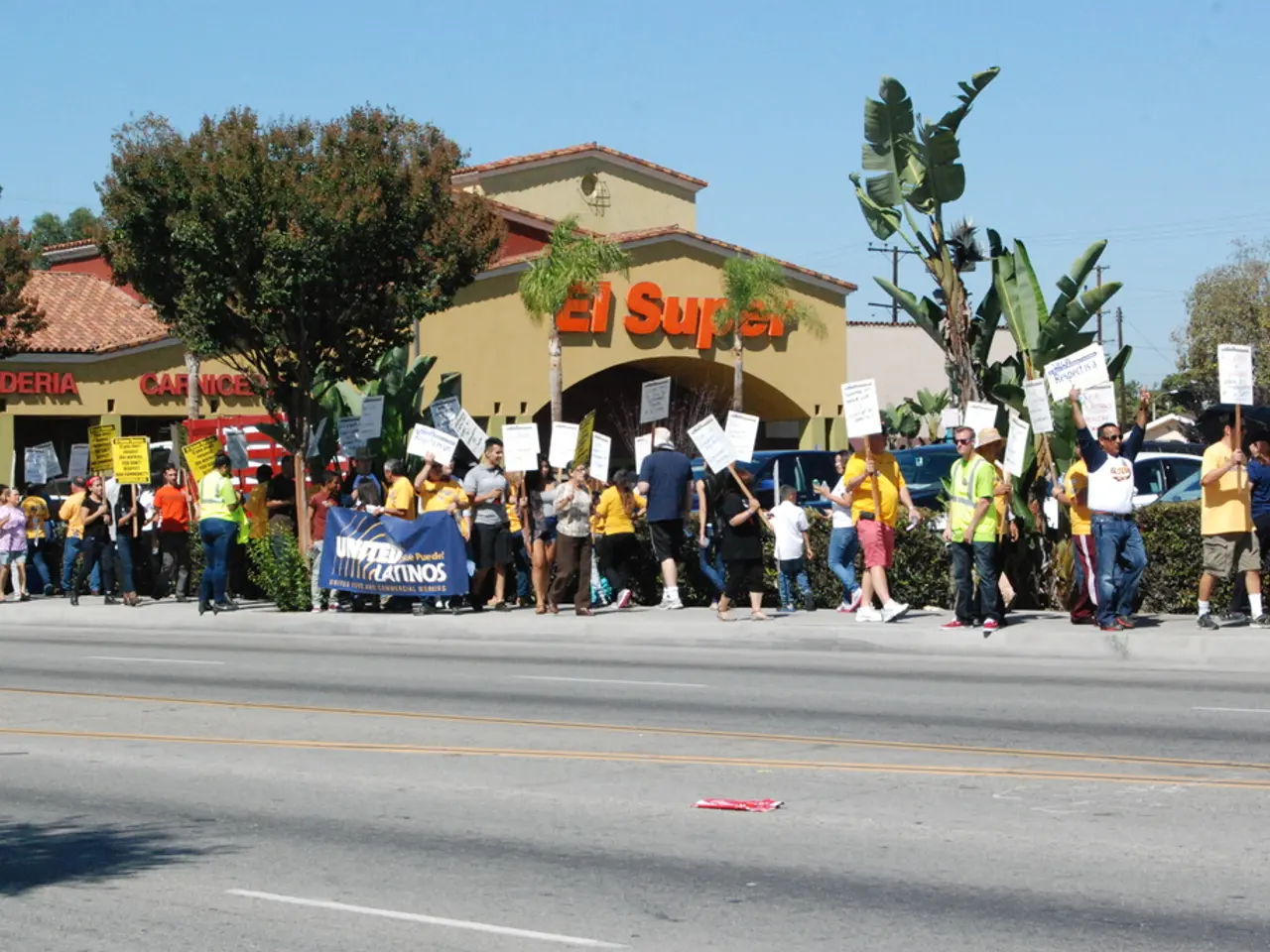Political Campaigns Utilizing Big Data for Conflict Mitigation
In the digital age, big data has emerged as a powerful tool in political campaigns, offering the potential to not only inform decisions but also foster more constructive political discourse. By employing several strategies that emphasize transparency, fairness, and ethical communication, big data can be used effectively to prevent conflicts.
**Ethical Data Use**
Privacy by Design is crucial in ensuring that data collection and use comply with privacy laws, protecting voter information and maintaining trust. Fairness and non-discrimination are also essential, with diverse datasets and fairness-aware algorithms preventing biased messaging that could exacerbate conflicts. Transparency and accountability are key, with clear communication of data collection methods and oversight mechanisms in place.
**Data-Driven Messaging**
Targeted but inclusive messaging is essential, using data to craft messages that resonate with specific voter groups without alienating others. Emotional intelligence in messaging is also vital, with sentiment analysis helping to avoid messages that provoke conflict and instead focusing on constructive dialogue.
**Analyzing and Predicting Behavior**
Polling and prediction tools are used to predict voter turnout and sentiment shifts, helping campaigns adapt their strategies to prevent conflict by addressing potential issues early. Social media monitoring is another crucial aspect, allowing campaigns to identify and address misinformation or inflammatory content before it escalates into conflicts.
**Training and Governance**
Ethical training for campaign staff is essential to prevent misuse, while data governance policies limit data sharing and ensure compliance with ethical standards. Collaborating with universities or NGOs can further enhance data ethics, interpretation accuracy, and legitimacy in sensitive political environments.
Multilingual data processing uncovers hyper-local issues and ensures early detection of sentiment shifts in diverse communities. Predictive analytics models analyze past conflicts, voter behavior, and current trends to forecast potential flashpoints and suggest strategic communication responses. AI can cluster sentiment, detect anomalies, predict inflammatory content, and recommend timing, tone, or channels for de-escalation.
Early warning indicators in a political context include spikes in hate speech, coordinated misinformation campaigns, increased protest chatter, and unusual engagement from extremist groups. Social media platforms, news outlets, surveys, chat apps, event data, and government records are key sources for gathering signals of potential conflict. Geospatial data enables campaign teams to visualize high-risk areas, monitor demographic factors, and deploy region-specific strategies for conflict resolution.
Real-world examples of big data preventing conflict include initiatives in Kenya and India that used social media monitoring and SMS-based alerts to prevent election-related violence through timely interventions. Recently, political campaigns have started using Discord, a popular chat platform among gamers, for formal and personal interactions with potential voters.
In conclusion, big data, when used ethically and responsibly, can play a significant role in preventing conflicts in political campaigns. By focusing on transparency, fairness, and ethical communication, big data can help campaigns identify early warning signs of political unrest, enabling proactive conflict mitigation, and fostering more respectful and constructive political discourse.
- Social-media analytics can help in identifying and addressing misinformation or inflammatory content that may escalate into conflicts, as part of a strategy for ethical communication in political campaigns.
- In the realm of political campaigns, data analytics can be employed to craft targeted but inclusive messaging that resonates with specific voter groups without exacerbating conflicts, making use of sentiment analysis for emotional intelligence.
- To prevent conflicts in political campaigns, data analytics tools such as polling and prediction models and geospatial data can help anticipate voter turnout, sentiment shifts, and high-risk areas, allowing for proactive conflict mitigation strategies.




